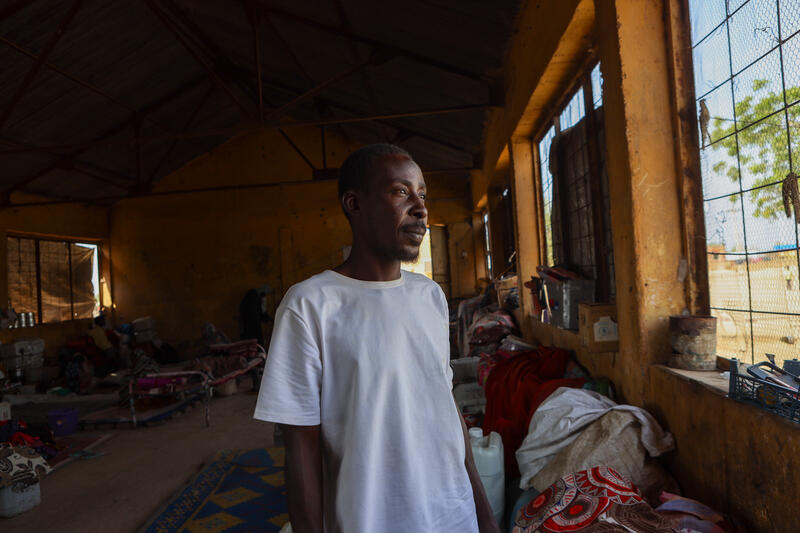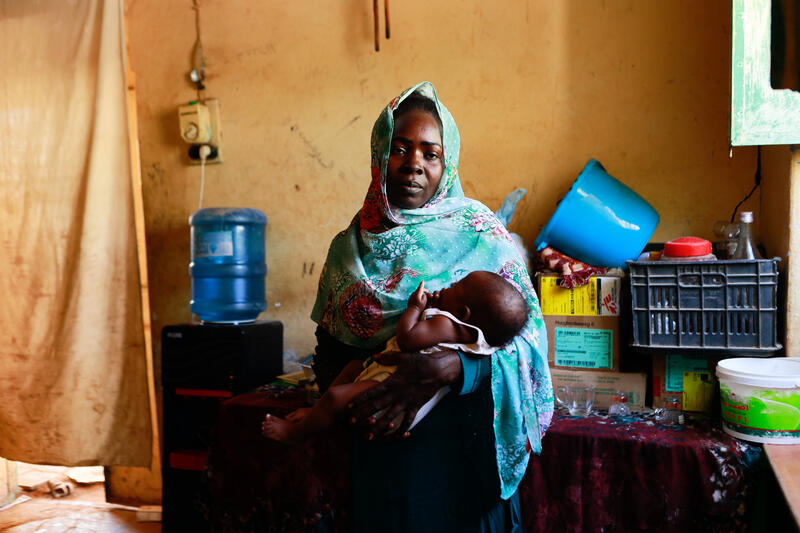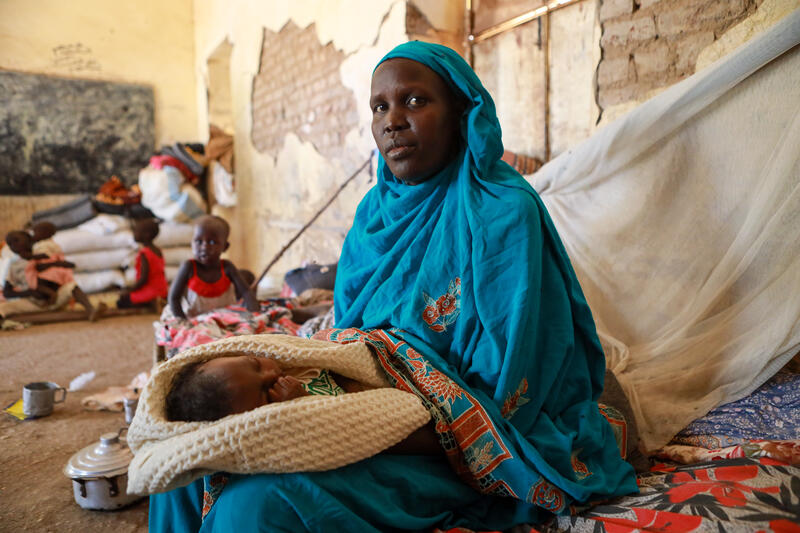“The war brought nothing but destruction and the separation of families,” says Al Bakri Al Taher Malik, who used to live in Al Engaz, south Khartoum. “We lost our home, and we lost our city, Khartoum.”
“I survived death twice. I got injured the first time by a bullet and the second time by shrapnel due to bombing from planes. I decided to leave Khartoum to receive treatment due to the challenges of reaching the nearest [health] center.”

“I lost my nephew. He died from a shell on the first day of Eid [the celebration marking the end of Ramadan]. He was divided into three parts. He was performing ablution to go to the mosque when he died in front of the door of his house. Three other neighbours died in front of the mosque.
“I have three children, and I am concerned about their education, which has been disrupted by the war. I am unable to meet their needs because of difficult economic circumstances.”
When the pictures were taken, in early December, Al Bakri couldn’t wait to go back home to Khartoum.
“I'm waiting for the day when the war is declared over, even if I have nothing to return home to. I'll go [back], even if I have to walk on foot,” he said.
On December 17, conflict erupted in Wad Madani and Al Bakri had to leave again. He went on a three-day journey back to Khartoum. He feels pain from his injuries, particularly in the wintertime.

Souad Abdullah shared with us a brave story.
“I came all the way from Mayo, south Khartoum, to Wad Madani. The journey [took] three days riding a caro [a wooden cart pulled by a donkey] along with my six children, and I was five months pregnant at the time.
“When we arrived here, we were suffering. There were no bathrooms, water, food, or drinking water. The organizations then arrived and intervened, providing us with water, soap, and buckets, and our conditions improved slightly.
“Doctors Without Borders intervened and took care of us from the beginning, as the children suffered from sunstroke. The organization was present throughout the week. They also help me deliver my baby girl and did their best.
“I have no prospect of returning to Khartoum because of the huge destruction that has occurred there, as well as the demolition of institutions and hospitals.”

Marry Monga arrived on the 15th of May from Al Samarab, Bahri.
“This is my first time here in Wad Madani. I lived my entire life in Khartoum, from my birth until I got married, and I gave birth to my children there.
“The situation here is very chaotic. My baby is a month old, but he doesn't look one month old because I don't have any milk.
“There is no education or healthy food here, there is no controlled environment to take care of the children, and there is also no healthy environment [because of] the crowding and mixing of people.”
This environment causes diseases such as infectious diseases and cholera.
“We need aid, such as soap, so that children do not get dirty. Since we came here, we are suffering from a scarcity of aid and resources. In Khartoum, we had a life [and] we used to work and provide our [own] needs.
“There is no support or even enough money to buy a meal [here]. My child is currently sick, and I can only get him treatment through organisations.
“When I think about the future, I want my children to receive an education. I don't want my children to go through what we went through. In Khartoum, we were able to take care of our children and their studies in a healthy environment. Nowadays, we live on the street, and they could eat unsafe food and get poisoned.”
Malak Seed Story
“I was in the market when I got injured by bomb splinters as a result of the clashes that escalated in Jebel Awulia,” said Malak Seed, who lives in Fadasi camp, Wad Madani. “Every day, the situation rapidly got worse, and we decided to move to a safer place.”
When these pictures were taken in early December, Malak was missing home. “I feel homeless and I’m waiting patiently to get back home. I hope things improve and the war end soon.”
On December 17, a battle occurred in Wad Madani, and Malak managed to return to Khartoum. “We are suffering from a lack of services, as most of the shops are closed," she said. "The situation in Wad Madani was better than here."



